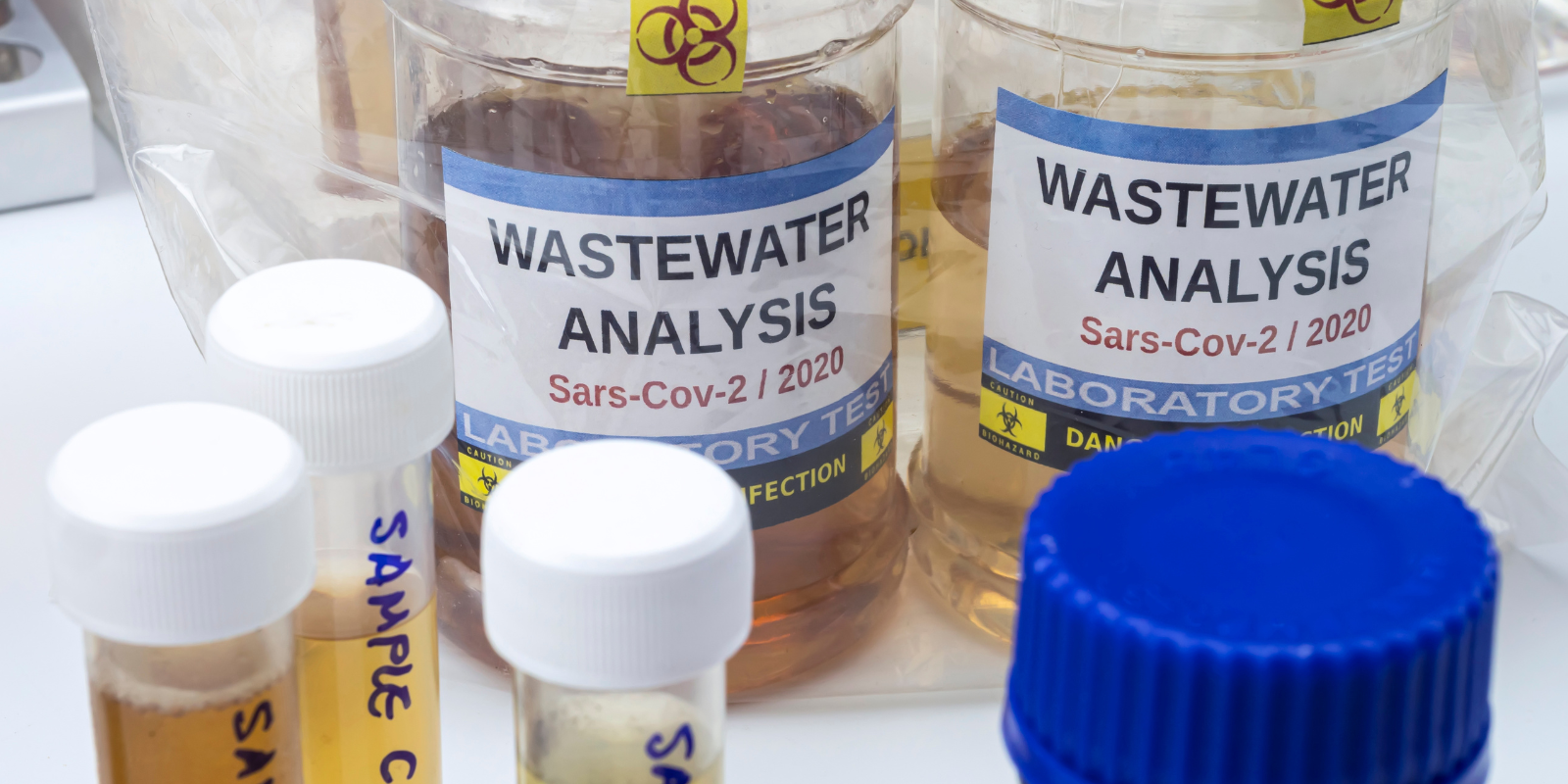Since the first year of the COVID-19 pandemic, federal and local agencies have used data from tests of wastewater collected at sewage treatment plants to help them track levels of the virus in real time. And now, research demonstrates “that wastewater sampling can be used as a powerful, informative tool to monitor drug use in specific communities,” says a University of Colorado Department of Medicine faculty member.
Health authorities are struggling to cope with what they call a “fourth wave” of drug-overdose deaths that claimed nearly 107,000 lives in the U.S. last year. It’s a wave driven in large part by use of synthetic opioids such as fentanyl in combination with various stimulants, including cocaine and methamphetamine as well as a category of newer drugs called novel psychoactive substances, or NPS.
→ New Research Shows Higher HIV Prevalence Among Opioid Overdose Patients in ER
Yet currently, “there aren’t a lot of great ways of monitoring what drugs are in the community,” says Jeffrey Brent, MD, PhD, a distinguished clinical professor in the CU Division of Pulmonary Sciences and Critical Care Medicine and a national leader in medical toxicology research.
“There’s what you can learn from drug seizures when users or dealers get arrested,” he says. “And we do studies based on what’s in people’s blood when they come to the hospital with opioid toxicity. But these are just random individuals or random seizures. It doesn’t give you a broad view of what’s going on in the community.”
And that’s why “this idea of testing wastewater, which seems like a weird thing when you first think about it, turns out potentially to be an effective way of examining broadly what’s out in the community.”
Everyone contributes
In a recent commentary for JAMA Network Open, Brent responded to new research indicating that tests of 208 wastewater samples collected in the Las Vegas area over an 11-month span for 39 drugs “showed unique patterns in drug use that varied by community and neighborhood and over time.” The new research follows scattered wastewater testing for common drugs in other locations.
Brent writes that “wastewater sampling has many characteristics of an ideal drug surveillance system” with a number of advantages over research into drug-use trends that depends on scattered data.
“Because every member of the population contributes to wastewater production, such sampling surveys everyone in a given geographic area rather than just a hopefully representative sample,” he writes. “Adding to this strength, wastewater sampling is also sensitive and anonymous, both of which have important implications for accuracy and protection of individual privacy. Furthermore, it is noteworthy that wastewater sampling does not have the potential biases that may arise due to the differential reporting that occurs in other passive drug surveillance systems.”
→ Key Takeaways from Largest-Ever Addiction Prevention and Treatment Implementation Study
As an example of potential bias, Brent cites an example of previous research drawing on blood samples from people coming into the hospital emergency department. “There’s a lot of potential stigmatization that can come from that, because at least in that study, there was an overwhelming preponderance of people tested who were African American,” he says. “So it could be viewed as saying that a lot of African Americans use drugs. But what about the rest of the population? But when you do sampling on a community level, it’s not just one bunch of people. It’s the entire population.”
Potential pitfalls
In his commentary, Brent warns of potential pitfalls in wastewater sampling to track drug use patterns, especially if a study names a specific community where a high rate of drug abuse is detected.
“This application of wastewater drug surveillance does have the potential to stigmatize any identified communities studied,” he writes. “Such stigmatization has implications for factors like real estate prices, the likelihood of community improvement related to the willingness of businesses to establish themselves locally, and community gentrification.”
→ A Substance Use Disorder Specialist Goes on a House Call to the Nation’s Capital
Brent also says that studies drawing on wastewater data should take into account whether a community being studied has a sizeable transient population that might account for a higher rate of drug abuse.
He notes that in the recent Las Vegas study, visitors outnumbered permanent residents by an estimated 20 to 1 ratio. “Whether the drug-using population in an area is migratory or part of the base population has major implications for local public health responses and resource allocation for harm reduction interventions and related efforts,” he writes.
Sophisticated capabilities
And as far as detecting new NPS drugs that may not be widely identified yet, Brent says only a limited number of labs nationwide are capable of detecting some of these new substances.
“It’s pretty easy to monitor for the standard drugs,” he says. “What we’re really interested in finding is the new drugs that are out there and the new patterns of their use, and that requires sophisticated capabilities.”
Those advanced capabilities, he adds, “are not cheap. We need funding sources for it, and right now the government is not funding a lot of routing wastewater sampling for drug use.”
Brent is a co-founder of Toxicology Investigators Consortium (ToxIC), a national research network that provides data on toxicology cases and contributes to research projects.
When the Las Vegas study was submitted to JAMA Network Open for publication, Brent was asked to review it and he suggested some changes. “And then they came back to me and asked if I would write a commentary to put this into broader perspective and help people in public health understand the significance of the study and how they can apply it for their own purposes.”
Brent says that to his knowledge, testing wastewater for drugs has not been performed in Colorado yet, “but my expectation is that, before long, someone will be doing it here, once we work out the technological issues.”




